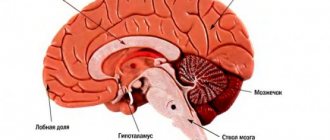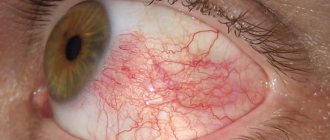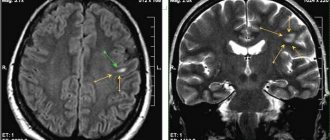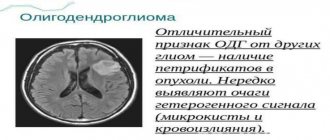01.12.2018
28. Oka Y. Thirst driving and suppressing signals encoded by distinct neural populations in the brain.
29. Saker P. Regional brain responses associated with drinking water during thirst and after its satiation.
30. Dohi K. Molecular hydrogen in drinking water protects against neurodegenerative changes induced by traumatic brain injury.
31. Meinders A. How much water do we really need to drink?
32. Jéquier E. Water as an essential nutrient: the physiological basis of hydration.
33. Aguado E. Hypodynamia Alters Bone Quality and Trabecular Microarchitecture.
34. Mukhamedieva L. Human's breath during modeled prolonged hypodynamia.
35. Ye F. A systematic review of mobility/immobility in thromboembolism risk assessment models for hospitalized patients.
36. Boraxbekk C. Physical activity over a decade modifies age-related decline in perfusion, gray matter volume, and functional connectivity of the posterior default-mode network-A multimodal approach.
37. Kemi O. High-intensity aerobic exercise training improves the heart in health and disease.
38. Hautala A. Heart rate dynamics after controlled training followed by a home-based exercise program.
39. Treatment exercises for the spine with osteochondrosis.
40. Osteochondrosis of the cervical spine, special exercises from Dr. Butrimov
‘>
Symptoms of weakened blood vessels
If similar symptoms are detected, you need to pay close attention to the condition of the blood vessels:
- Fainting and dizziness;
- Throbbing pain in the back of the head or temples, tinnitus;
- Cold and swollen feet;
- Intolerance to hot weather;
- Dependency on weather;
- Depression, insomnia, fatigue;
- Shortness of breath, tachycardia, constantly changing pressure;
- Hematomas even with a small impact;
- Changeable temperature;
- Nosebleeds;
- Spider veins and pinpoint hemorrhages on the skin;
- Tingling, pain and bruising on the eyeball.
We improve blood circulation in the brain - sufficient and complete sleep
According to research, the duration of proper sleep is 7-8 hours per day20. Sleep should be regular - that is, it is recommended to fall asleep and wake up at approximately the same time. It is necessary to sleep in absolute darkness and silence, so the brain can fully analyze and systematize the information received during the day, as well as update the neurochemical mechanisms responsible for long-term memory21.
Research shows that adequate sleep normalizes blood circulation in the brain, ensuring adequate daily intake of oxygen and nutrients by brain cells. Lack of sleep, on the contrary, impairs blood supply to the brain and blood circulation, leads to the death of neurons and extensive damage to the central nervous system (including disruption of the function of the blood-brain barrier, which protects the brain from infections and toxins that can enter it through the blood)22,23. Therefore, in order to improve blood circulation in the brain, you must first normalize sleep; without this measure, other methods will be less effective.
How to strengthen blood vessels?
Most doctors suggest that patients not only take medications, but also change their lifestyle. It is worth giving up bad habits (smoking and alcohol), changing your physical activity regime (try not to sit still, but also not overloading yourself with exercise), resting, avoiding nervous shock and sticking to proper nutrition.
Medicines are the main way to correct the condition of blood vessels. With proper treatment, you can achieve good results in strengthening the walls of blood vessels or reduce the risk of problems with them in the future.
Causes of cerebral circulatory disorders
The brain is the main organ of the central nervous system; it consists of neurons united by synaptic connections. By interacting with each other, neurons form chains of electrical impulses that regulate the activity of the body1.
The functioning of the brain requires large amounts of energy, which it receives through the bloodstream. Blood enters the brain through four arteries - two carotid and two vertebral, and outflow - through two jugular veins. With an average weight of 2% of the total body weight, the brain at rest consumes 15% of all blood circulating in the body, 20-25% of the oxygen received during respiration, and up to 50% of all glucose reserves entering the blood from the liver2.
Blood supply to the brain and blood circulation within the organ play a crucial role in its functioning, since without the provision and distribution of energy, oxygen, vitamins and amino acids entering the bloodstream, neurons cannot grow and divide. 85% of all pathologies associated with brain function are due to circulatory disorders3. Improving blood circulation in the brain is necessary for any pathologies and conditions that can lead to vasoconstriction or impaired blood circulation within the organ.
Pathological causes of vasoconstriction and their consequences:
- Arterial hypertension. In response to increased blood pressure, the walls of blood vessels spasm, and additional layers grow on the inside of the vessels. Thickening impairs blood flow4,5,6.
– Hypercholesterolemia. Violation of lipid metabolism in the direction of increasing low-density lipoproteins (“bad cholesterol”) leads to the formation of atherosclerotic plaques on the walls of blood vessels. Plaques completely or partially block a vessel, disrupting blood circulation, including in the brain7.
– Thrombosis. The formation of a thrombus (a clot of coagulated blood) can have various origins, as a rule, these are damage and cracks in the walls of blood vessels. Blood clots lead to blockage of blood vessels and increase blood viscosity, impairing blood circulation to the brain8,9.
- Diabetes. With increased levels of glucose in the blood, thickening of the vascular walls is stimulated, which leads to disruption of the natural flow of blood, and blood supply to the brain is disrupted10,11.
– Osteochondrosis of intervertebral discs. The vertebral artery is one of the main vessels through which blood flows to the brain. With pathology of cartilage tissue, intervertebral discs compress this artery, disrupting the blood supply to the brain12,13.
- Cardiopsychoneurosis. This is a complex of disorders of the cardiovascular system that can lead to disturbances in blood supply and circulation in various organs, including the brain14,15.
Impaired blood circulation in the brain can result from traumatic brain injuries, including concussions and bruises, as well as traumatic injuries to the spine, accompanied by impaired blood flow.
Neurocirculatory dystonia in the context of cerebral circulatory disorders is considered separately. The difficulty is that this disease often does not have an acute phase, and its main symptoms without targeted diagnosis can be explained by a number of typical pathologies such as chronic fatigue syndrome16. In other words, many simply do not know that they have this disease (sometimes called a syndrome in the medical literature).
Symptoms of neurocirculatory dystonia are nervousness, increased fatigue, sleep disturbances, weakness, impaired cognitive function, and subsequently palpitations, cardialgia, shortness of breath, and blood pressure disorders. In the future, it leads to arrhythmia, tachycardia, and chronic vascular insufficiency. All these symptoms are explained, among other things, by impaired blood circulation in the brain17.
Reasons for the development of neurocirculatory dystonia18:
– genetic predisposition;
– psycho-emotional stress;
– lack of sleep (inconsistency with circadian rhythms);
– lack of physical activity;
– unbalanced diet, obesity;
– alcohol abuse, smoking.
That is, lifestyle directly affects the development of neurocirculatory dystonia, which leads to chronic cerebral circulatory disorders. Under conditions of lack of oxygen and nutrients, the rate of formation of neurons decreases, connections between control departments, as well as the transmission and inhibition of nerve impulses within the central nervous system are disrupted.
As a result, memory, concentration, reaction and coordination of movements deteriorate, constant fatigue and drowsiness are observed, and performance drops to 50%19. This condition can lead to massive death of brain cells and the appearance of local foci of necrosis. That’s why improving blood circulation in the brain is vitally important; let’s look at how to do it point by point.
Improving blood circulation in the brain - diet and drinking regimen
A diet to improve blood circulation in the brain is selected based on the metabolic characteristics and condition of a particular person. Before adjusting the diet, it is recommended to conduct the following studies: daily blood pressure monitoring, blood tests for glucose and cholesterol, and a coagulogram. Based on research results, it is necessary to adjust the amount of salt, sugar, animal fat and other products in the diet24,25,26.
Diet recommendations to improve blood circulation in the brain:
– The consumption of salted, smoked and canned foods is usually limited in the presence of arterial hypertension, based on the recommendation - no more than 4.5 grams of salt per day.
– Restrictions on the amount of animal fat (fatty meat, lard, milk, butter) are determined by the presence of hypercholesterolemia, which sets the upper limit - 1 gram of fat per 1 kg of weight.
– The amount of monosaccharides and disaccharides (glucose, sucrose and foods high in them) is limited when blood glucose is high. In this case, preference is given to polysaccharides, which are found, for example, in durum cereals and pasta.
– Since vitamin K actively stimulates blood clotting, if this indicator increases, it is recommended to limit all foods high in vitamin K (white cabbage, broccoli, spinach, lettuce, soy, eggs, dairy products, green tea).
Research shows27 that foods high in sodium reduce central perfusion pressure, which measures the level of blood flow to the brain. In this regard, outside of pathologies, it is recommended to avoid excessive consumption of foods high in sodium - salt, herring, caviar, almost all cheeses, beef kidneys, feta cheese, dry cream, powdered eggs.
Products to improve blood circulation in the brain:
– amino acids of animal and plant origin (meat, legumes);
– seafood (mussels, shrimp) and sea fish (mackerel);
– vegetables and fruits high in vitamin C and group B;
– cereals, nuts, berries and citrus fruits (rich in bioflavonoids).
Drinking regime
– a separate item in the program for improving blood circulation in the brain. Research shows that sufficient water consumption (2.5 liters per day in the absence of additional instructions due to pathologies) is the prevention of blood clots. However, in case of pathologies, it is still necessary to use antiplatelet agents or anticoagulants prescribed by a doctor.
Thirst quenching is also necessary for the development of neural populations28,29. The latest research shows that molecular hydrogen in drinking water protects the brain from neurodegenerative changes of various origins, including those caused by traumatic brain injury30. Therefore, to improve blood supply to the brain, it is necessary to drink enough water, and the drinking regime should be regular - the recommended 2.5 liters must be evenly distributed throughout the entire waking period.
Please note that 2.5 liters is an average. According to research, women on average need to drink less water than men (2.2 liters and 3 liters per day, respectively)31. Also, the recommended daily amount of water is determined by weight, age and lifestyle32. Below is a table of recommended daily water intake.
Other nutritional principles
Not only the diet itself is important for cerebrovascular accidents, but also the principles of proper food consumption. You need to eat often and in small portions. For the brain to work efficiently, you should not overload your stomach. This also applies to various batteries. If you combine different forms of protein, the processing and absorption time of the product increases.
It is important to prepare any product correctly. The ideal option is to steam or boil. If possible, it is better to eat raw vegetables and fruits. For better digestibility, salads must be seasoned with oil - olive or hemp. Any fried foods increase the content of negative cholesterol and accelerate the formation of blood clots in blood vessels.
Exercises to optimize blood circulation
In addition to food, you should pay attention to methods such as physical exercise and training the brain itself.
The set of exercises is as follows:
- Rotate your head in one direction or the other alternately.
- Tilt your head so that your ear touches your shoulder.
- Bend your head forward until your chin touches your chest.
By performing this complex daily, you can relax the neck muscles, improve blood supply to the head and reduce compression of blood vessels. You need to repeat all the exercises 10-15 times, if you have a sedentary job, then several times a day.
Breathing exercises also help. You can drink oxygen cocktails, and also buy a can of oxygen and take a couple of breaths a day.
Suitable for brain training:
- Daily game of chess.
- Memorizing poems will help develop the memorization process.
- Solving crossword puzzles.
- Do daily activities with your eyes closed.
- Try to start doing everything with your left hand.
Such mental gymnastics stimulates the work of all brain cells and prevents diseases of the nervous and vascular systems of the body.
Improving blood circulation in the brain - bioactive supplements
Most dietary supplements for improving brain circulation are nootropics, the mechanism of action of which is related to stimulating blood flow. One of the popular nootropics with this mechanism of action is glycine. This is an aliphatic amino acid that functions as a neurotransmitter and has an “inhibitory” effect on neurons, which gives a mild sedative effect.
Glycine reduces the release of GABA and glutamic acid and stimulates blood circulation in the brain. Target effects – relieves irritability and aggressiveness, eliminates chronic fatigue syndrome, improves brain function, stimulating cognitive functions (memory, reaction, attention).
Among nootropics there are not only amino acids, but also extracts, for example, ginkgo biloba extract. It contains 24% flavonoids, vitamins, minerals and other bioactive substances. It has a vasodilating effect, improves blood flow to the brain and blood flow inside the organ. It also stabilizes blood pressure and cholesterol levels, improves microcirculation. Helps eliminate neurocirculatory dystonia and chronic fatigue syndrome caused by psycho-emotional stress.
Complex supplements, such as “Healthy Sleep,” will help improve blood circulation in the brain, eliminate anxiety and normalize sleep. This supplement includes glycine, gamma-aminobutyric acid, tryptophan, melatonin and 4 extracts - lemon balm, passionflower, valerian and chamomile. The benefit of the supplement is that it not only stimulates blood circulation in the brain and improves cognitive function, but also stabilizes the sleep/wake cycle, helping to get enough sleep.
Healthy food
Products that improve cerebral circulation and memory should be included in the diet of every person. Then you will be able to maintain a clear mind and good health for the rest of your life. These products include:
- Tomatoes. Fresh tomatoes and tomato juice are natural antioxidants and effectively reduce blood cholesterol levels.
- Fish. Especially valuable dietary varieties are trout, salmon, salmon. Contains iodine, Omega-3 and fatty acids. Prevents blockage of blood vessels.
- Garlic. It is used not only as an antimicrobial agent, but also to restore vascular tone, as well as to remove cholesterol.
- Berries. Almost all berries have a positive effect on cerebral circulation, as they contain vitamin C, iron and are antioxidants. Prevents the formation of blood clots and thins the blood.
- Cabbage. Contains two essential microelements - calcium and phosphorus. Optimizes blood viscosity and strengthens the walls of blood vessels. In addition, the high fiber content cleanses the body and removes toxins.
- Sprouted wheat. Contains zinc, which helps improve blood composition.
- Low-fat dairy products. These include: kefir, cottage cheese, and low-fat cheese. They contain amino acids that are essential for the construction of cells, including nerve cells.
- Green tea. Stops the destruction of brain cells.
- Cocoa. Natural cocoa beans contain flavanol, which is an antioxidant and improves blood flow to brain cells. Dark chocolate also affects the head, but in small quantities. Chocolate helps quickly give energy to the mind, which is why it is recommended to eat it before an exam or other strenuous activity.
- Broccoli. Stimulates the work of neurons and the entire brain, which helps activate all processes.
- Sunflower seeds. They reduce cholesterol due to the fact that they contain vegetable fats.
- Nuts. Stimulate brain function and improve mental activity due to a large amount of polyunsaturated fatty acids. The leader in the positive effect on the brain is walnuts.
Of course, this is not a complete list, but these are the products that have the maximum effect on memory and cerebral circulation.
Why is it so important to watch your diet?
“Fragile” brain vessels are the main cause of strokes , in which rupture of the supplying vessels and hemorrhage occurs.
At the same time, some areas of the brain may not receive enough nutrients, which provokes paralysis, dysfunction of unconditioned reflexes, and in critical cases, death.
What causes this very “fragility” of blood vessels? Most often, this is natural wear and tear of the capillaries, which is complemented by non-compliance with a healthy diet and consumption of foods harmful to the brain, when huge amounts of cholesterol, lipids, sodium compounds and other toxins accumulate in the blood. Let's look at the most important products.
Traditional methods
You can improve the condition of blood vessels using folk methods. For many centuries, people have known the following remedies:
- medicinal decoctions and tinctures based on herbs, for example, ginkgo biloba;
- balanced diet. Every day you need to eat fresh fruits, vegetables, foods rich in fiber;
- playing sports. Correctly calculated loads can strengthen the heart muscle and improve blood circulation.
A neck warm-up and head massage will also help.
Vitamins and minerals
Before identifying products to improve blood circulation in the brain, you need to understand exactly what substances and microelements help maintain it in a healthy state:
- Sulfur - helps fill cells with oxygen.
- Glucose provides the brain with energy.
- Phosphorus - helps the formation of neurons.
- Iron is responsible for both the formation of nerve cells and their interaction.
- Calcium - stimulates hematopoiesis.
- Lecithin - lowers the level of “bad” cholesterol in the blood, removes free radicals.
- Iodine - prevents excessive blood thickening and optimizes blood flow.
- Vitamins C, D, E - thin the blood, strengthen the walls of blood vessels, reduce the amount of cholesterol.
- B vitamins are natural antioxidants. In addition to strengthening blood vessels, these substances help improve memory and attention, as well as the speed of interaction between neurons.
- Fatty polyunsaturated acids Omega-3 and Omega-6. In sufficient quantities, they help the formation of new cells, strengthen neural connections and help improve metabolic processes in the cerebral cortex.
- Choline - participates in all chemical processes occurring in the brain.
The diet of a healthy person, both an adult and a child, should contain foods containing all of the listed substances.









